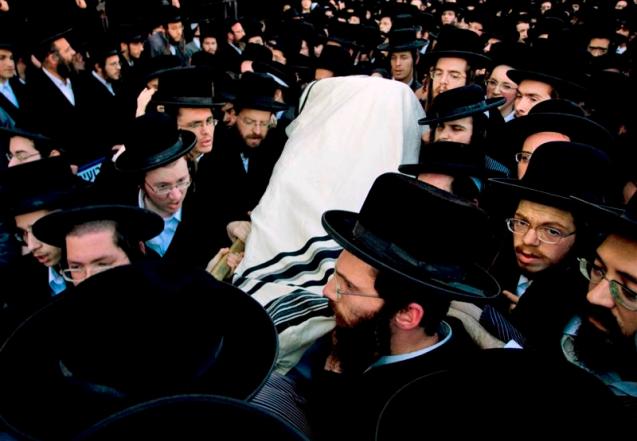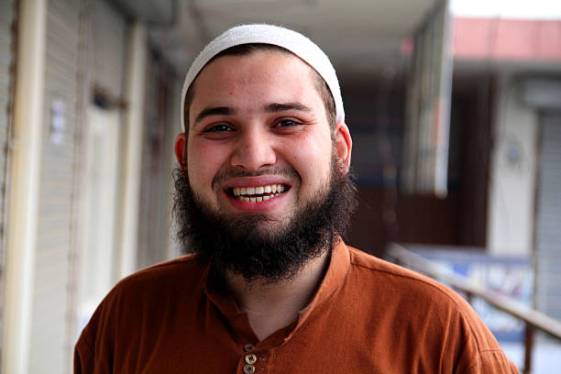What does Islam teach us on having good social relations. How is a Muslim expected to behave, associate and treat other fellow human beings? In order to take a look at the moral, social and religious obligations of a Muslim towards someone outside Islam, lets go back to the time of Prophet Muhammad (pbuh).
That the Prophet was trustworthy, defended justice, sided with the poor and weak, gave importance to familial relations, emphasized the rights of parents, and had many similar characteristics are all matters of historical record. That he had such a character indicates his uniqueness. And that is the reason we consider all the actions and behaviour of the Messenger of God, as Sunnah. Meaning we have to follow his example and try our level best to be like him in all ways. Including the way he conducted himself with people. So Lets take the aspect of his relations with those outside Islam and strive to follow in his footsteps.
His Composure
The Prophet (pbuh) made contact with non Muslim leaders and chiefs from different regions of Arabia. Prophet Muhammad (pbuh) taught a message of justice, peace, human rights, animal rights and even environmental rights as ordained by Allah. Allah has shown us in the character of Prophet Muhammad (pbuh) the model of a compassionate person. He treated every one, friends and foe, man and woman, young and old, with kindness and respect.
His Patience
Even when the pagan Arabs reacted to the message of the Prophet with extreme hatred, he exhibited great patience. The Prophet always treated people well; he used kind words and avoided rude and aggressive behavior. He was always sincere in his relationships and he abstained from unnecessary arguments. As a matter of fact, despite the rude behavior of some of the communities he encountered while spreading the religion, the Prophet curbed his anger and remained patient.

“If you wish I will bring together the two mountains that stand opposite to each other at the extremities of Makkah to crush the people of Taif in between”
One such example is when the prophet journeyed to the city of Taif that was in a valley. As the prophet delivered the message of Allah to them, the people of Taif were not even ready to listen to him. They greeted him with mockery and ridicule. They pelted him with rocks and drove him out of the city, wounded and covered with blood. At this time of hardship an angel came down by the command of Allah and asked the messenger of Allah “If you wish I will bring together the two mountains that stand opposite to each other at the extremities of Makkah to crush the people of Taif in between” but the Prophet did not wish so, instead the Messenger of Allah made a prayer for them, asking Allah to at least guide their offspring. What a display of patience, tolerance and understanding despite the hostility shown towards him. Subhanallah
Despite whatever hatred, evil, and hardships come our way by others we have to remain patient, tolerant and never wish harm to befall those who caused us such distress. instead we should hope for goodness and guidance for them by Allah.
Allah says in the Quran in surah al qasas, verse 54: Those will be given their reward twice for what they patiently endured and [because] they avert evil through good”
Allah Himself, the Creator of all mankind is saying that He will double the reward of those who are patient, who endure, when evil is done to them. and that they should respond to such evil through good actions.
His Calmness
Prophet Muhammad (pbuh) also never coerced people when communicating Islam to them. He never forced them to accept the messages he was conveying in line with the principle, “There is no compulsion in religion” (as stated in chapter Al-Baqarah, verse 256). He did not listen to those who advised or desired the use of violence to bring people to Islam and always remained distant from such people.
His Acceptance
Prophet Muhammad (pbuh) saw no harm in different communities living together, with each community contributing something useful to society. For instance, Muslims and non-Muslims were able to live together in peace in Medina. The Prophet signed a treaty in Madinah with the Jews and people of the book. It stated that they would all protect one another , and live side by side fulfilling the rights of each other. The Jews and people of the book could practice their faith and the Muslims would practice theirs. That they would not harm one another nor assist anyone who comes to harm either one of them. These were some of the conditions set in the treaty. Ensuring safety, equality, and freedom of faith to all in the community.

The Jews and Muslims could live side by side according to the treaty signed.
The Quran mentions the prophets kind and gentle behavior in these words: “O Messenger of Allah! It is a great Mercy of God that you are gentle and kind towards them; for, had you been harsh and hard-hearted, they would all have broken away from you” (chapter 3:159).
His Unity
Another great example of the prophets capability of uniting the people through justice and equality is when the renovations of the Ka’aba took place.
The Ka’aba was in the lower section of Mecca, and due to continuous rains it had become old and collapsed. So it was being renovated. The work progressed well until al-Hajar-ul-Aswad, the Black Stone, was to be put back in its place. Each quarter of the Ka’aba was being built by one leading family of Mecca. Each family felt the honour of placing the Black Stone as belonging to them.

Each family felt the honour of placing the Black Stone as belonging to them.
The disagreement became deeper, and led to a lot of argument, shouting and abuse.
One member stood up and said, “I have a suggestion, let us wait till tomorrow and see who enters the Mosque first in the morning; then let him decide”. They anxiously waited next morning to see who was the first to come and enter. It was prophet Muhammad (pbuh). He was told about what the people of Makkah were fighting about. Prophet Muhammad (pbuh) put his robe on the floor, he took the sacred Black Stone and placed it in the centre of the robe and said. “The chief of each family will take one corner of the robe and lift it together”. With that, each understood a marvelous example of justice in sharing the honour. When the robe with the Black Stone was lifted to a reasonable height. Prophet Muhammad (pbuh) took the Black Stone and put it in its proper place with his own hands. None felt insulted and each had his share of the privilege and honour.
This is how Muhammad (Saws) the Prophet of Islam succeeded in uniting the Arab tribes with his honesty, justice and noble character.
His Behaviour
Many people embraced Islam due to the behaviour and attitude of the Messenger and his companions towards them. It moved them so much they wondered what is this religion that teaches such good values, such good morals despite the hate and anger they used to exhibit towards him. They use to harass him in every way they knew.
One old woman made it a habit of throwing dirt on Prophet Muhammad (pbuh) whenever he passed from her house. Prophet Muhammad (pbuh) had to pass that house daily on the way to the mosque. Even when the old woman threw dirt on him, he would pass silently without showing any anger or annoyance. This was a regular, daily event.

The old woman always threw dirt on the Prophet.
One day when the Prophet was passing by, the woman was not there to throw the dirt. He stopped and asked the neighbour about her well-being. The neighbour informed the Prophet that the woman was sick on bed. The Prophet politely asked permission to visit the woman. When allowed he entered the house, the woman thought that he had come there to take his revenge when she was unable to defend herself because of sickness. But the Prophet assured her that he had come to her, not to take any revenge, but to see her and to look after her needs, as it was the command of Allah that if any one is sick, a Muslim should visit him and should help him if his help is needed.
The old woman was greatly moved by this kindness and love of the Prophet. By the example of greatness of Prophet Muhammad(pbuh) , she understood that he was truly the Prophet of God and Islam was the true religion. She accepted Islam at once.
His Equality
The Prophet (pbuh) also emphasized the importance of piety as the hallmark of respect. In his farewell speech, Prophet Muhammad (pbuh) stated that “An Arab has no superiority over a non-Arab, nor a non-Arab has any superiority over an Arab … a white person has no superiority over a black, nor does a black have any superiority over white except by piety and good action.” The Last Sermon is the culminating point of Prophet Muhammad’s life. He challenged a disunited population that was constantly engaged in warfare by calling on people to unite under a banner of humanity.

He said to the Prophet: “This is a funeral of a Jew.”
Once the prophet Muhammad (pbuh) and several of his companions were sitting down along a street in Medina. One of the companion spotted a funeral procession approaching the group. In respect of the dead human body, prophet Muhammad (pbuh) stood up as the procession crossed in front of him. At that moment, a companion, who was still sitting down, said to the Prophet, “This is a funeral of a Jew.” Upon hearing these words, the prophet became upset and said to the companion, “Is he not a human soul?”
From this we can see that Prophet Muhammad (pbuh) respected human beings irrespective of their religion. He taught mankind that every human soul is important, whether alive or dead. This was the prophets concept of dignity. He defended humanity.
The Prophet continuously warned the Muslims to treat the non-Muslims using positive behavior and attitudes.
Also Allah says in the Quran, (60:8): “God does not forbid you from those who do not fight you because of religion and do not expel you from your homes – from dealing kindly and justly with them. Indeed, God loves those who act justly.”
From the example of the prophet and the above quranic verse we can understand how tolerant and accomadative is islam as a religion and the extent to which islam teaches its followers with regard to coexistence with people of all colours, all tribes, all casts, all religions, all races and all nations.
It is sometimes incorrectly stated that islam was spread at the point of the sword. The above examples of the prophet clearly indicates that the companions of the prophet who travel widely was an influence on the people whomever they met by their conduct of honesty, sincerity, patience, good morals and tolerance.
His Love
Prophet Muhammad (pbuh) said: “None of you have faith until you love for your neighbor and brother what you love for yourself” (Sahih Muslim)
This is a beautiful saying of the Prophet. It says anything you love for yourself, anything you wish you had, or you want to have, wish the same for your neighbour. All the good you wish you had, wish the same for your neighbour. Whoever it may be.
This saying of the prophet is another indicator of absolute magnanimity of the conduct of the Prophet Muhammad (pbuh) through which he taught his followers by practical example how to respect a fellow human being through which to enhance healthy, social relationship. This also furthers the idea how much emphasis is laid down in the teachings of Islam in relation to building and sustaining healthy society governed by the principles of justice, equity and tolerance. As Muslims we have this great lesson taught to us by the quran and the Prophet Muhammad (pbuh) and the exemplified demonstration of these teachings by the prophet.
Therefore a Muslim believes that it is not permissible, under any circumstances whatsoever, for a Muslim to mistreat those who are not muslims, who is not hostile towards Islam; so the Muslim should not commit aggression against him, or frighten him, or terrorize him. We should instead pray for their goodness and well being, treat them with kindness, patience and treat them with justice, this is how the messenger of Allah treated and prayed for them.

A simple smile
“Repel [evil] by that [deed] which is better; and thereupon the one whom between you and him is enmity [will become] as though he was a devoted friend.” (Quran, 41:34)
Here Allah says that despite anyone showing enmity or hate, we should try to cover the evil done by doing good in return, hoping that it’ll soften their hearts.
A simple smile to another being, an act of kindness and care, being a comfort to those in distress or assisting those in need can bring unity and love between communities. Different religions, casts or races should not be a hindrance to our moral values. We should treat everyone with respect.
